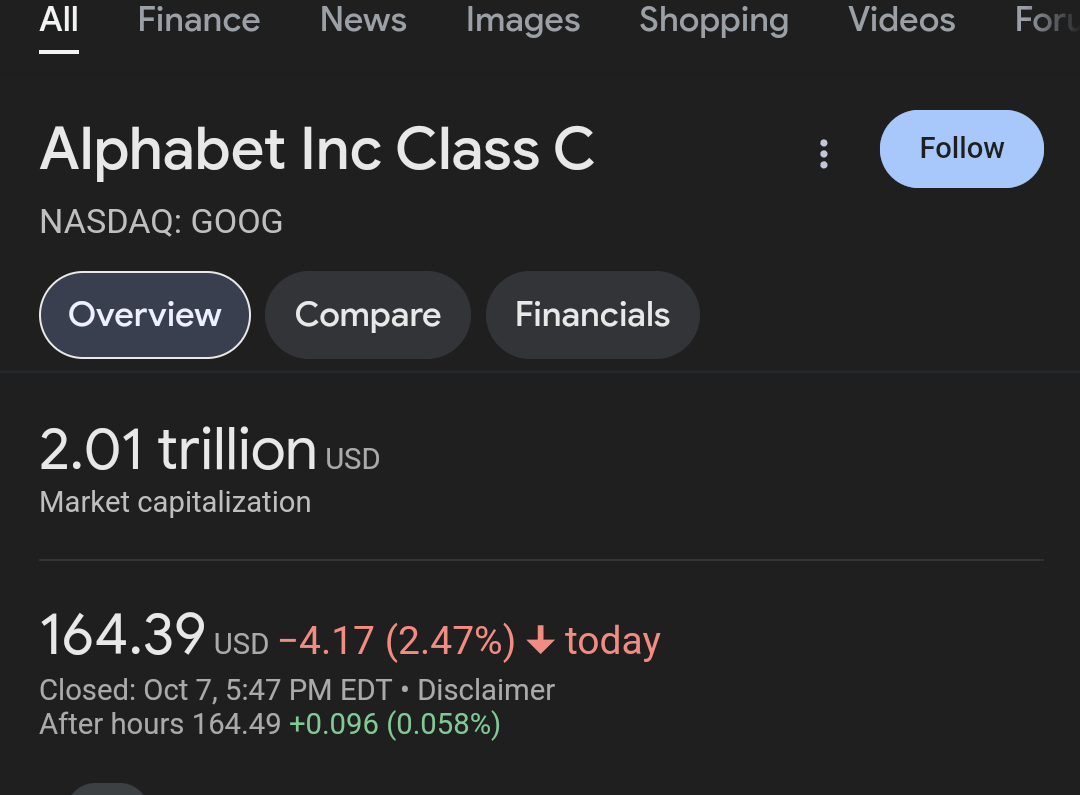But third party stores are already allowed and supported on Android?
“Allowed and supported” is something different then “its possible”. The article mentions some points that seemingly haven’t been “supported” in the past:
- Stop requiring Google Play Billing for apps distributed on the Google Play Store (the jury found that Google had illegally tied its payment system to its app store)
- Let Android developers tell users about other ways to pay from within the Play Store
- Let Android developers link to ways to download their apps outside of the Play Store
- Let Android developers set their own prices for apps irrespective of Play Billing
Google also can’t:
- Share app revenue “with any person or entity that distributes Android apps” or plans to launch an app store or app platform
- Offer developers money or perks to launch their apps on the Play Store exclusively or first
- Offer developers money or perks not to launch their apps on rival stores
- Offer device makers or carriers money or perks to preinstall the Play Store
- Offer device makers or carriers money or perks not to preinstall rival stores
Thanks Mr. Epic Judge
WTF, they can rule Google can’t offer perks for exclusivity, but epic does that shit with it’s game store.
Because Google holds a monopoly position and Epic doesn’t.
That said, the irony didn’t escape me either.
One offers an exclusivity contract in exchange for guaranteed income, the other offers exclusivity in exchange for having your app on their store.
deleted by creator
So they will have the same judgement for apple right?? And not the same bullshit excuse that since it’s even more locked down it’s okay for them to do it?
Apple got away with it because they were VERY careful to go up to the line without crossing it as well as careful wording of things, unfortunately.
No, because apple’s monopoly doesnt count because they’re upfront about it being a monopoly.
Which is stupid, but that’s how it works apparently
The EU is probably working on that front at the very least. Unfortunately the US side may need regulators to carry it forward
Play Store
This is all about the Play Store though, it has literally nothing to do with competing stores. I use F-Droid today and there are no restrictions from Google about what apps I can install through that store, whether I can pay for apps through that store (some apps have donation buttons inside), etc. There’s nothing stopping Epic from distributing their own app store like F-Droid does even before this decision.
So I really don’t understand what “cracking open Android” means here. All that seems to be happening is that Google is restricted from certain actions within its own store, which is absolutely fine by me (I don’t use the Play Store), but I don’t see any actual changes to Android or third-party app stores.
The closest is this one:
Offer device makers or carriers money or perks not to preinstall rival stores
But Samsung already has its own app store, no? So is there any actual evidence that this was ever a thing?
They should place these restrictions on Apple, not Google, because Apple is the one doing all of this nonsense. Yeah, Google should be reigned in a bit, but they’re really not the problem here.
Yes but only through sideloading, this order requires Google to allow third-party app stores to be distributed from within Play Store, i.e. you can search for “F-Droid” from directly within Play Store and install it.
Which also comes with a bit of a positive reputation to truly allow a competitor to rise. Before, non-technical people (read:the average person) saw sideloading as dangerous because of “viruses”, which led to low uptake of Epics own store (Which they did try to distribute through sideloading)
Now if an average person sees F-Droid or other app store in the play store they’re automatically going to think “It’s in the Play Store and vetted by Google so it MUST be safe to check out”
How can Google vet an app store without vetting everything it could serve?
That’s just the perception with the average person, not that they would actually do it
this order requires Google to allow third-party app stores to be distributed from within Play Store
Honestly, I don’t really agree with that. I don’t think Google should be forced to allow any app onto its store, provided there’s an alternative way users can get that app.
I installed F-Droid from its website and I’ve installed other apps directly from their respective websites, just like I normally would on a PC. I don’t see any reason for Microsoft, for example, to allow competing stores to be distributed in their Windows Store (or whatever they call it now).
The whole concept of “sideloading” is just a marketing gimmick for doing the same thing people normally do on other devices. It’s stupid and unfortunately really effective, so maybe they should get fined for that as well. But I don’t think that means Google should be forced to accept any apps that it doesn’t want to distribute.
@sugar_in_your_tea @cm0002 That’s the thing: Microsoft Store allows you to download Epic Games Store, Battle.net and Ubisoft Connect from their store. I don’t see anything bad with being able to download F-Droid from Google Play, as long as there’s a way to protect it from impersonators or malicious apps.
Can confirm, I just pulled up Epic Games Store from within the MS Store lol
And on top of that, this isn’t some startup who has to depend on every dollar, even if you’re right @sugar_in_your_tea@sh.itjust.works this is fucking Google with a 2 TRILLION DOLLAR market cap they can lose some revenue to make room for some competition even if it’s a tad unfair.

even if it’s a tad unfair.
I’m not shedding any tears for Google, but we shouldn’t be doing things just because we don’t like the person or group being impacted.
I absolutely hate Google and have spent a lot of time de-Googling my life. But when it comes to legal precedent, I think we should be very careful.
I don’t see a problem with F-Droid being available on Google Play, I just don’t think it should be a requirement to allow competitors’ app stores in their app store.
That said, it’s interesting that Microsoft Store allows alternative stores. I’ve avoided the Microsoft Store like the plague, so that’s cool. Maybe that’s a good argument for Google being required to follow suit. Idk, I just don’t like the idea of an app store being forced to support direct competitors, that seems like a conflict of interest and I honestly wouldn’t trust that store to be consistently up-to-date.
Maybe yeah, it’s so so fast to search “F-Droid” & hit download. Even prompts (at least on some Android versions) to allow installation and takes you right to settings.
Legislating incentives & payments is interesting, but not sure it’s a huge deal to do the very fastest search with the included web browser and then be able to install just about anything afterwards.
Don’t like all the bloatware that some manufacturers stealthily install and the nag notifications that can’t be disabled but those are separate issues.
Exactly. We should make rules about scary prompts and whatnot, I’m just hesitant about requiring an app store to distribute apps it doesn’t want to for whatever reason, whether that’s an ideological, technical, or competitive reason.
Where does it say in the ruling that the play store has to host and distribute other stores in the ruling? I didn’t notice anything in there about that.
It’s…in the first paragraph
Today, Judge James Donato issued his final ruling in Epic v. Google, ordering Google to effectively open up the Google Play app store to competition for three whole years. Google will have to distribute rival third-party app stores within Google Play, and it must give rival third-party app stores access to the full catalog of Google Play apps, unless developers opt out individually.
Wow. That’s brutal.
Doesn’t FDroid still not allow automatic updates due to restrictions in Android?
Meanwhile yes the Samsung galaxy store has extra power over other store alternatives because they are a powerful OEM and can modify Android as they like.
Other OEMs (ones that are often not able to use Play Services) also have their own 1st party app store. Amazon is one, but many others exist in China.
Fdroid has automatic updates since this year.
automatic updates
Not sure, but I generally disable them in any store I use anyway, because I like to be in control. So I’m not sure if it’s a technical limitation or a technical choice.
So it’s quite possible Google Play has elevated permissions to apply automatic updates. That said, I use GrapheneOS (on a Google Pixel device), so the Play store doesn’t have those elevated permissions (I only use it for a couple apps on a separate profile), so I think it’s not allowed to do automatic updates on my device as well.
The difference here from my understanding of what I read was that you could now open the Google Play Store and type “fdroid” and the fdroid app could be installed with the single install button.
Yea that’s exactly it, no more side loading needed.
I guess my only question is what then happens when you want to disable the Google Play Store and Google Play Services. Mind you, anybody who uses custom ROMs and such likely does not sign into the Google accounts anyway, so would not be able to download a third-party app store from the Google Play Store because they refuse to sign in. And Google Play requires sign in.
Nothing different. You download the F-Droid APK and install it just like you do today.
It’ll be “allowed and supported” when e.g. you can download F-Droid from the Play Store instead of having to side-load it.
But doesn’t that tie third party stores to the play store more?
Did you know that if you use the “transfer data from my old phone to the new phone” thing, only the apps installed from Google Play will be carried over? That is, FDroid apps and their data will be lost.
To be honest even getting data back from an older backup in your same device sucks, since I rooted my phone and got Swift Backup I got one Android issue ticked off (iOS handles the backups way better, now I am looking to customize my lock screen like in iOS, what a crazy world we live isn’t it?).
Tldr for those who are confused, since Android already does support side loading and even seamless updates for third-party app stores (like Droid-ify, etc), these are mostly legal changes.
Basically Google can’t force Google IAP as the only method of payment in apps anymore, can’t block companies from advertising how to find them on non-Play Store android app stores. So good changes overall.
Also when you download third party apks, on Android, while it’s still relatively easy to do, it does give bit of a scary warning saying security issues are on the user for doing so. This creates the assumption that Play Store is the only secure way to get apps on Android, and the OS gives all sorts of special security exceptions to the Play Store for that. Obviously other secure app stores can exist, so this can be seen as an anti-competitive method since Google is exempt from their own scary apk install message.
COOL, cool…. Hay why was the exact opposite ruled for apple?
The biggest reason is most likely that the cases had different judges.
Apple produces hardware for their walled garden, whereas Google imposes their terms on third parties. I can’t speak to how this works legally, but thats the main difference as far as I understand.
It’s no longer an excuse for Apple. Since the EU’s ruling they now have to allow third party stores there: https://support.apple.com/en-us/118110 and of course they’ll fight tooth and nail against it here, the infrastructure exists so many of their previous arguments around not doing it are moot
Cool, that’s great news for Apple users
How the judges see it:
Google forces conditions onto other OEMs. They have to include a bunch of Google stuff on their phones if they want the play store and play services, which they realistically need, that’s just a market reality. They have no real choice but to do whatever Google says. Google is abusing their market dominance to push their ecosystem, and the OEMs have no real choice but to play ball.
Apple doesn’t force anybody else to use their products. They make their own ecosystem for their own phone. If iOS was available on non-Apple devices, and Apple was forcing stuff onto those OEMs knowing they have little other choice, Apple would be getting the same treatment.
Would like to know the answer, but feel like I already know.
Does that answer have anything to do with the great vehicular hobo massacre of 1988?
No?
You’d be surprised how often it’s relevant, but kept virtually a secret.
This is a wild downplay of this.
The judge is forcing Google to let third party app stores sell and distribute all the apps in the Google Play Store. That s massive.
You have it backwards. They’re putting third party stores on the Play store.
Google will have to distribute rival third-party app stores within Google Play, and it must give rival third-party app stores access to the full catalog of Google Play apps, unless developers opt out individually.
It’s both, and honestly a pretty genius move on the judge’s part. “Oh you keep finding ways of leveraging this gate to uncompetitively make money, well how about I just mandate that you give access to both sides of the gate to everyone else.”
That’s pretty bullshit, honestly. Being forced to provide the bandwidth to hurt its own business. All while Apple gets to keep screwing people.
Mostly fair, but I’ll push back on the security issue.
Side loading an apk is extremely dangerous, and an easy attack vector.
While there are plenty of malicious apps that make it on the Google store, they do attempt to do some automated and even manual curation. This is fact.
I think it’s wholly appropriate to warn the user that they’re bypassing that standard, if imperfect, Google security coverage. And granting extensive app permissions is done at your own risk.
3rd party app stores may do their own security curation as well, and it’s up to them to communicate that and educate their users on why they still get the Google warning.
You could make exactly the same argument for installing software onto your computer, it is an attack vector and going through microsoft’s store or your distro’s repos gives a level of curation. So should desktop users be prevented/scared off from installing what software they want because it’s a security issue?
You mean that warning that they all give when you’re installing a 3rd party app? And the warning is more aggressive when it’s an unregistered (licensed?) App.
They all do it. Windows, MacOS for sure. I don’t remember seeing it on Linux, but I’m usually not installing sketchy binaries on Linux.
If malicious apps can make it way to Play Store, this means it is not 100% safe and make it subject to the same security warnings is reasonable, and not give it exceptions and makes it like the only safe option.
Cool. Do apple next!
Especially because they already have the infrastructure to do so with the EU’s ruling, so they can’t make any claims about it not being secure or that it’s not possible
If that makes it even easier to get F-Droid installed for the masses, I’m all for it.
There are many things I like about F-Droid, but its UI is awful for a lay person
droid-ify :)
wording “crack open” doesn’t seems appropriate
next you’re going to tell me ‘side loading’ and ‘backdoor access’ sound naughty
Maybe it was phrased like that for this very reason.
that is an epic judge right there
He rules
They got the wrong phone OS…
Still.
At least they have precident now.
XDA-CHADS, TODAY WE WILL REMIND THEM.
They need to do this on iOS Fr Fr
I’ll always read this as the article praising the judge by calling them epic.
What jurisdiction in this?
@muntedcrocodile @RmDebArc_5 California
It mentions decoupling the payment system from the store.
Is this really a good thing? It’ll lead to Google relying even more on ad revenue.
if Google wants paid, they can make a compelling and competitive product
🥳🎉
Could be good
About fucking time


















